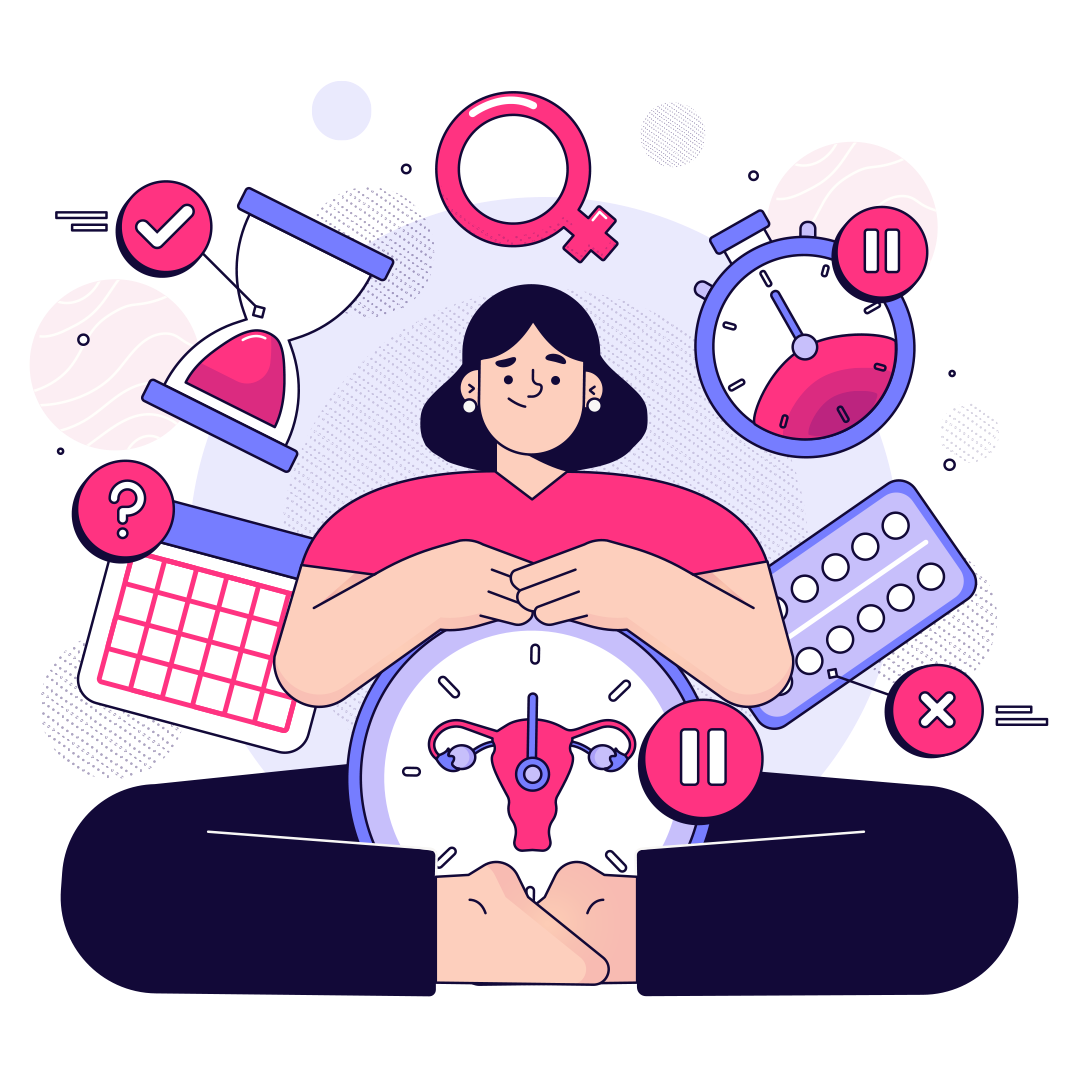Hormonal Changes in Women Over 40: Causes and Solutions

Discover the most prominent symptoms and causes of hormonal changes after 40 so you stay healthy with the help of the key tests and a preventive routine.
As we age, our bodies undergo complete hormonal changes, and in women, these are especially pronounced after 40. As hormones like estrogen, progesterone, and testosterone inevitably decline with age, this may induce metabolism changes, leading to weight gain, mood swings, fatigue, and sometimes disrupted sleep patterns.
What are hormonal changes, and why do they occur?
Hormonal changes are part of the aging process, but lifestyle, stress, and diet compound them by worsening symptoms. Understanding the cause of hormonal changes in the body helps people identify the signs of changes in hormones, such as hot flashes, night sweats, and mood swings.
Testing for hormones is essential in managing the transition successfully, as frequent checks would equip one with the knowledge to lead a balanced, healthier lifestyle.
Platforms like Bharosa.life provide full support and guidance about necessary hormonal changes along with testing for a healthier life after 40 for those who prioritize personal well-being.
What Are Hormonal Changes After 40?

Hormone changes are variations in hormone levels that come naturally with age. When one reaches the age of 40, the body naturally slows down its production of key hormones that govern metabolism, mood, and reproduction.
Hormonal changes in females cause sudden drops in estrogen and progesterone, which causes premenopausal or menopause in women. Testosterone levels in both males and females also start dropping at this stage, further affecting their muscle mass, energy levels, and sex drive.
Thyroid hormones are responsible for an imbalance in the body's metabolic activity. This imbalance causes fatigue, weight gain, and skin-related changes.
One needs to know the signs of hormonal changes and what causes hormonal changes.
Common Symptoms of Hormonal Changes

Hormonal levels in the human body differ, especially after 40. Both sexes experience a wide range of symptoms that may affect their daily lives. Some of the most common hormonal changes at 40 symptoms:
1. Weight gain
Due to different hormone levels, the metabolism rate slows down, and a person may gain weight without altering their diet or engaging in active physical exercise.
2. Fatigue
It has been observed that after 40, most people suffer from chronic fatigue syndrome. Since most of the patients begin to have low levels of essential hormones such as estrogen, progesterone, and testosterone, it becomes difficult to feel energetic due to persisting fatigue.
3. Mood Swings and Emotional Changes
Hormonal imbalance creates marked mood swings and leads to enhanced irritability, anxiety, and depression. This affects the physiological and emotional strength of a person.
4. Hot Flashes and Night Sweats (In Women)
Women, for instance, may undergo hot flashes and night sweats due to hormonal changes caused by low levels of estrogen, which are among the most common symptoms of such changes.
Hormonal Changes and Their Impact on Metabolism and Emotions
The hormonal change after age 40 impacts how metabolism and mood interact, thereby affecting overall health. Here are some hormonal changes and symptoms:
- When key hormones begin to decline, the body's way of controlling metabolism slows down.
- A drop in estrogen levels makes it much harder to burn the stubborn weight around the abdomen.
- People over 40 may observe weight gain even without changes to diet or exercise.
- Knowing what hormonal changes are and how they affect metabolism allows you to manage these shifts effectively.
- Apart from the physical, hormonal shifts can cause broad impacts on mental wellness. Anxiety, depression, and irritation are caused by unstable neurotransmitters in the brain that are caused by hormonal changes.
Wrapping Up
It is extremely crucial to monitor how hormonal levels change after the age of 40. As estrogen, progesterone, testosterone, and thyroid hormones vary in levels, you can get necessary tests done and identify the signs and symptoms of hormonal changes.
Testing helps men and women recognize signs of hormonal changes. It is important to learn what causes hormonal changes and how they may affect metabolism, mood, and energy. This can be done with lifestyle modifications to minimize the effects.
At Bharosa.life, you can find some full resources and advice to guide you through managing such changes effectively while remaining in control of your health and well-being after 40.
